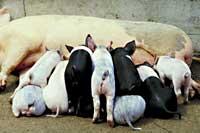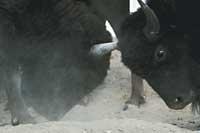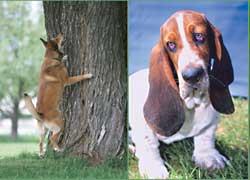Animal identity

In human beings, of course, there are many examples that show that in the same situation each individual makes his decision. For example, when there is a risk situation, a person may face or abandon the danger, fleeing from it. The decision that each individual makes is a question of identity, which depends on how it is.
However, to think that the same thing happens in animals, to some it seems a provocateur or a barbarism. It seems impossible for animals to have identity. However, many who have a close relationship with animals think otherwise. Thus, most ranchers or pet owners have no doubt that two individuals of the same species can always behave very differently, that is, depending on their identity. Therefore, for them animals have personality.
Decision capacity
Scientists have also tried to answer this question and, after analyzing many animal species, from ants to primates, have come to the conclusion that some animals have identity. In fact, at least 60 species have observed that individuals of the same species do not behave in the same way.

To analyze this diversity of behaviors they have observed how they have responded to different situations in life. First, scientists have recognized that in certain animal species individuals are able to decide how to act and have analyzed how they act in situations of risk.
They can be understood as risk situations, both competition and struggle between individuals of the same species, as the danger or presence of predators to hunt, as well as the decision to reproduce in case of scarcity of resources. In the first two there is no doubt about the risk, but the third, although less evident, is a risk situation. And when there are few foods, animals must choose between using them to survive or reproduce them.
In all three situations, researchers have shown that some animals of the same species are brave and aggressive, while others tend to escape danger or are cautious. Moreover, in species such as fish, birds and rodents, scientists have seen that the answers are related, that is, that the daring in one area of life is the same in others. They have also seen that trends persist for years, so each animal maintains its identity.

Finally, it seems that individuals take one or another stance based on their risk of extinction. It seems that those who have great intentions in life, those who have much to lose, are more prudent than those who do not have much to lose. They, for example, will go back to a risk of struggle and tend to hide from predators.
So, once again, researchers have shown that animals and people are not so different. It is now being investigated whether identity has a genetic basis and what influence natural selection has on identity diversity. Because curiosity has no limits.
Published in 7K.
Buletina
Bidali zure helbide elektronikoa eta jaso asteroko buletina zure sarrera-ontzian











